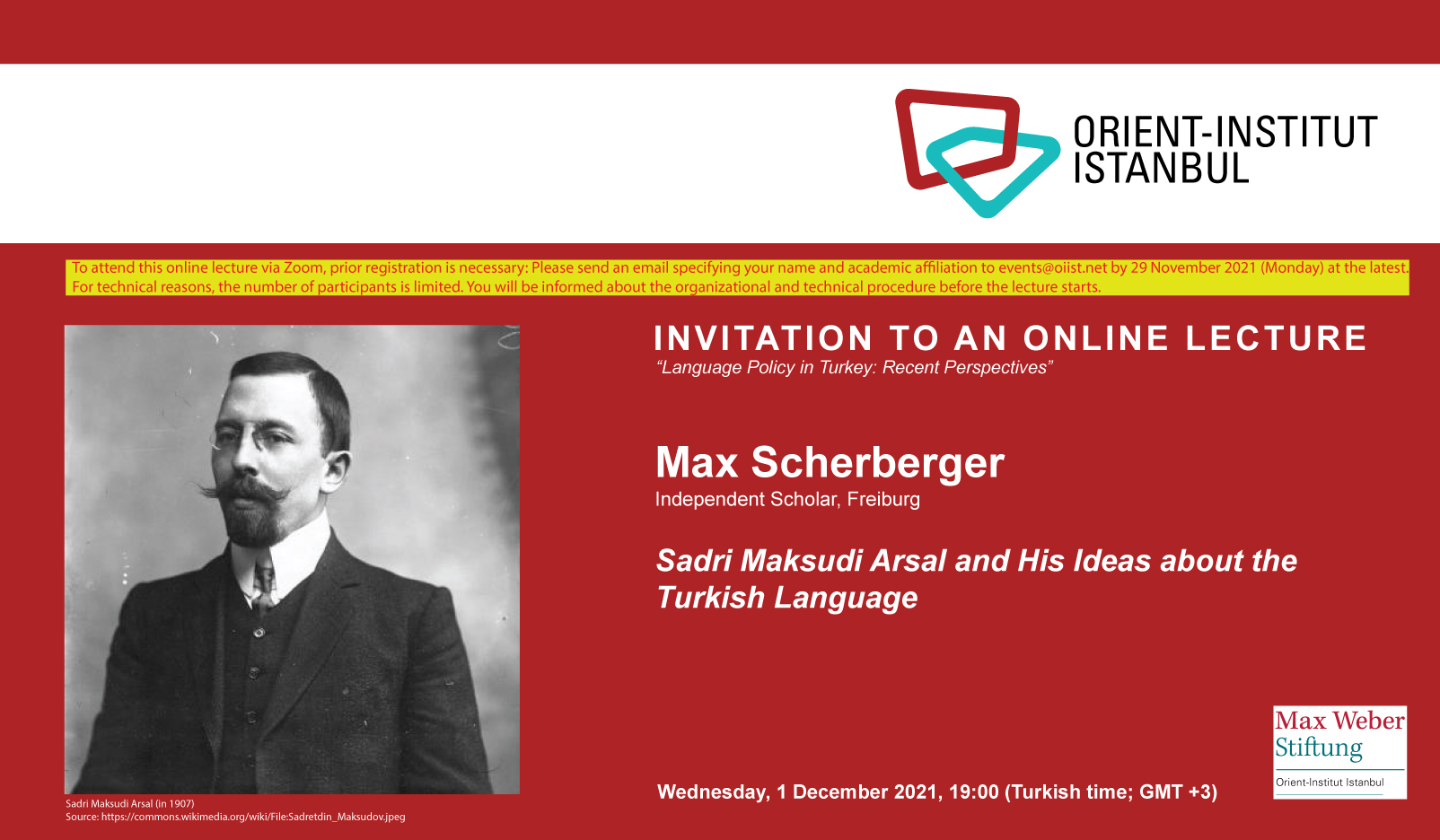Dezember, 2021
Details
Abstract: Like Yusuf Akçura, Abdullah Battal-Taymas and other intellectuals of Tatar origin, Sadri Maksudi Arsal (1879–1957) from Kazan played an important role
Details
Abstract:
Like Yusuf Akçura, Abdullah Battal-Taymas and other intellectuals of Tatar origin, Sadri Maksudi Arsal (1879–1957) from Kazan played an important role for the construction and development of the Turkish Republic. He met Mustafa Kemal Atatürk and made important contributions to the Kemalist reforms of law, politics, history and language. His role in the Turkish Language Reform is often underestimated. In his huge book Türk Dili İçin (‘For the Sake of the Turkish Language’) he defended the idea of establishing a pure modern Turkish literary language not only for Turkey, but for all Turkic people in the world. He analyzed the language reforms of several other nations like the Romans, Arabs, Germans, French, Czech, Finns, Russians and Hungarians and explained that Turkish, in his view one of the richest and most ingenious languages in the world, should be reformed accordingly. He was convinced it was possible to replace almost all loan and foreign words with genuine Turkish words and expressions taken from the spoken language in Turkey and its dialects, from Ancient Turkish and other Turkic idioms, or with new words coined with the help of the rich fundus of Turkish suffixes. This idea was crucial during the first period of the Kemalist language reform. The book had considerable impact on Mustafa Kemal who wrote a short preface for it saying that an independent nation needs an independent language. These words became the main slogan of the language reform and are cited in numerous studies. The contents of Maksudi’s book, however, mostly did not become the subject of a deeper analysis. Max Scherberger will take a closer look at the book and Maksudi’s ideas about the Turkish language and its reform.
About the speaker:
Max Scherberger studied Islamic studies and history at the University of Freiburg (1993–2000). From 2000 to 2003 he worked at CEBHEM (the Center for the Economic and Business History of the Eastern Mediterranean and the Middle East), a project at the University of Tübingen that included studies in the Archives of Poche (Aleppo) and the Ottoman Archives of the Prime Minister’s Office (Istanbul). In 2019 he graduated from the Department of Turkology and Central Asian Studies at the University of Göttingen with a PhD dissertation about Sadri Maksudi Arsal and his book Türk Dili İçin (about to be published). His main research fields are Eastern Middle Turkic ascension literature, Ottoman-Safavid relations, Ottoman and modern Turkish, Language Reform in Turkey. His publications include: “Türk dili, dillerin en zenginlerindendir”: Sadri Maksudi’nin Türk Dili için adlı kitabına bir bakış (2019), Der tatarisch-türkische Intellektuelle Sadri Maksudi Arsal (1878–1957) und seine Bedeutung für die Entwicklung des Türkentums in Russland und in der Türkei (2013), Das Mi‘rāǧnāme. Die Himmel- und Höllenfahrt des Propheten Muḥammad in der osttürkischen Überlieferung (2003).
Zeit
(Mittwoch) 19:00

